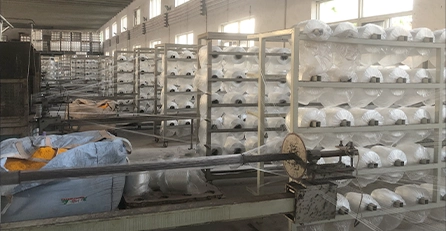
Understanding the Importance of Vacuum Hoses in Automotive Engine Performance and Maintenance
Understanding Vacuum Hoses The Unsung Heroes of Your Vehicle's Performance
When it comes to the intricate world of automotive systems, vacuum hoses often remain in the shadows, overlooked by most car owners. Yet, these seemingly simple tubes play a crucial role in the effective operation of various components in your vehicle. Understanding their function, maintenance, and potential issues can significantly enhance your vehicle's performance and longevity.
What Are Vacuum Hoses?
Vacuum hoses are flexible tubes that transport vacuum pressure throughout the engine compartment of your vehicle. They are primarily made of rubber or silicone material, designed to withstand the heat and pressure of the engine environment. These hoses connect various systems such as the intake manifold, brake booster, HVAC (heating, ventilation, and air conditioning) systems, and more.
Function of Vacuum Hoses
The primary function of vacuum hoses is to transfer vacuum, which is essentially a negative pressure created by the engine's intake. This vacuum is essential for various operations
1. Brake Boosting In most vehicles, the brake booster utilizes engine vacuum to amplify the force applied on the brake pedal, providing the driver with a more powerful braking experience. 2. Emission Control Many cars use vacuum hoses in their emission systems to control the flow of gases and ensure compliance with environmental regulations. This includes components like the EGR (Exhaust Gas Recirculation) valve, which helps reduce harmful emissions.
3. Fuel Delivery Some fuel systems utilize vacuum to assist in controlling fuel pressures, ensuring that your engine receives the proper amount of fuel for efficient combustion.
4. Air Conditioning Control In HVAC systems, vacuum hoses facilitate the operation of various components that control airflow and temperature within the vehicle cabin.
Common Issues with Vacuum Hoses
Like many components in your car, vacuum hoses can face deterioration over time. Common issues include
vacuum hose

- Cracking and Leaking Exposure to heat, oil, and other contaminants can cause vacuum hoses to crack, leading to leaks. A vacuum leak can result in poor engine performance, increased fuel consumption, and higher emissions.
- Disconnection Vacuum hoses can sometimes become dislodged due to vibrations or improper installation. Disconnected hoses may cause significant performance issues.
- Clogging Though less common, vacuum hoses can become clogged with debris or carbon deposits, impeding their function.
Maintenance Tips
To ensure your vacuum hoses function effectively, regular inspection and maintenance are vital. Here are some tips
- Visual Inspections Periodically check your vacuum hoses for signs of wear, cracks, or overall deterioration. Replace any hoses that show visible damage.
- Check Connections Ensure that all hoses are securely connected to their respective fittings. If you notice a loose connection, reattach it promptly.
- Listen for Changes Unusual hissing sounds while the engine is running may indicate a vacuum leak. If you hear such noises, consider having a professional inspect the system.
- Replace When Necessary Vacuum hoses are not designed to last forever. If your vehicle has high mileage, or if you've noticed performance issues, it may be prudent to replace the hoses as a preventive measure.
Conclusion
In the grand scheme of vehicle maintenance, vacuum hoses may not be the first thing that comes to mind. However, their role is essential for ensuring that your engine runs smoothly and your vehicle remains comfortable and compliant with regulations. By understanding their function, identifying potential issues, and adhering to a regular maintenance routine, you can help ensure that these unsung heroes of automotive systems perform their vital task effectively, keeping your vehicle in peak condition for years to come.
-
PVC Suction Hoses: Flexible, Durable Fluid Transfer SolutionsNewsAug.28,2025
-
Advanced Corrugated Pvc Hose Technology for Modern Industrial NeedsNewsAug.22,2025
-
Premium Fire Water Hose Solutions for Global IndustriesNewsAug.22,2025
-
Industrial Suppliers Guide to Premium Double Welding Hose SolutionsNewsAug.22,2025
-
Premium PU Pneumatic Hose Solutions for Industrial ApplicationsNewsAug.22,2025
-
Wholesale PVC Garden Hose China Solutions for Global BuyersNewsAug.22,2025













